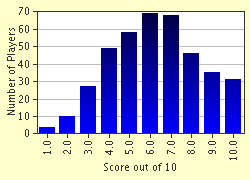Quiz Answer Key and Fun Facts
1. When did the Allies and Germany sign something equivalent to a peace treaty?
2. When were the Federal Republic of Germany and the German Democratic Republic founded?
3. One of the biggest problems in 1945-47 in Germany was the rubble that made transport very difficult in nearly all major cities. Who cleared it?
4. From which of these countries were large numbers of Germans forcibly expelled in 1945-47?
5. Who was the first Chancellor of the Federal Republic (West Germany)?
6. In which year was there an uprising in the German Democratic Republic (East Germany)?
7. Food rationing in the Federal Republic of Germany (West Germany) was abolished in 1950, four years earlier than in the UK.
8. Which city was the capital of the Federal Republic (West Germany) till German reunification in 1990?
9. The "Hallstein Doctrine" insisted that there was only one Germany - the Federal Republic (West Germany). As a result any country that recognized the German Democratic Republic (East Germany) was (at least initially) NOT recognized by the Federal Republic.
10. The Federal Republic of Germany (West Germany) was a founding member of the European Economic Community (EEC).
Source: Author
bloomsby
This quiz was reviewed by FunTrivia editor
gtho4 before going online.
Any errors found in FunTrivia content are routinely corrected through our feedback system.
